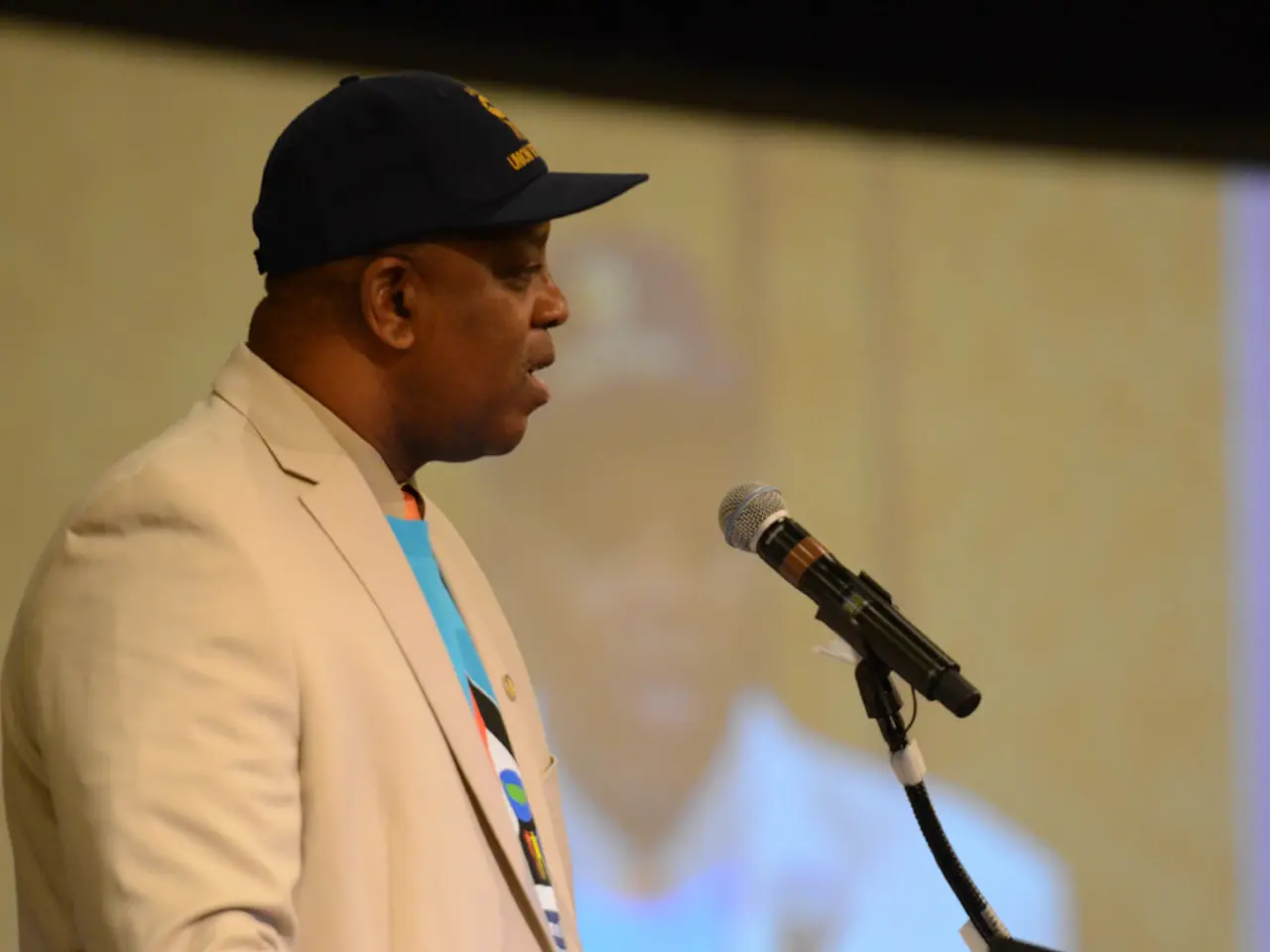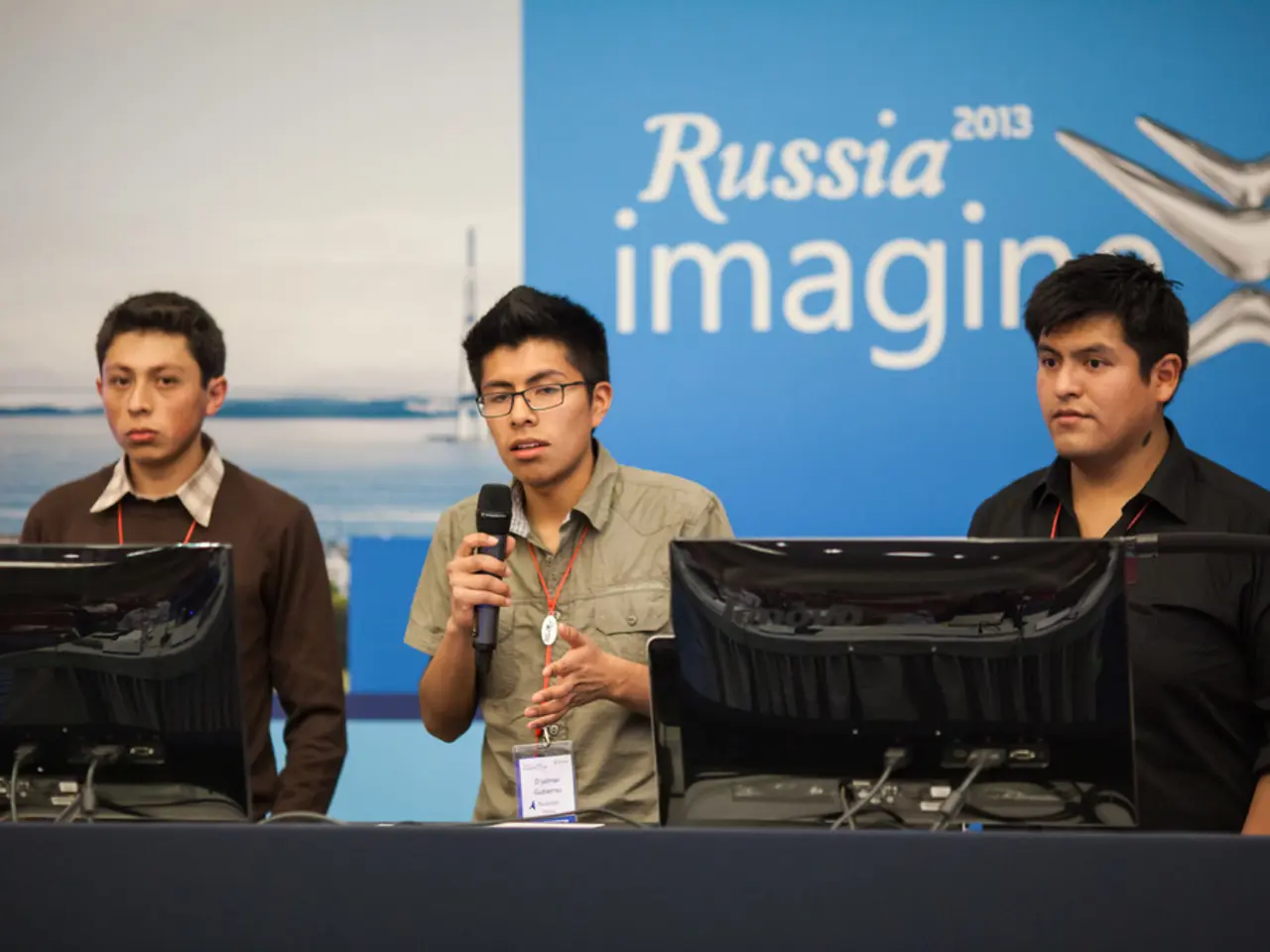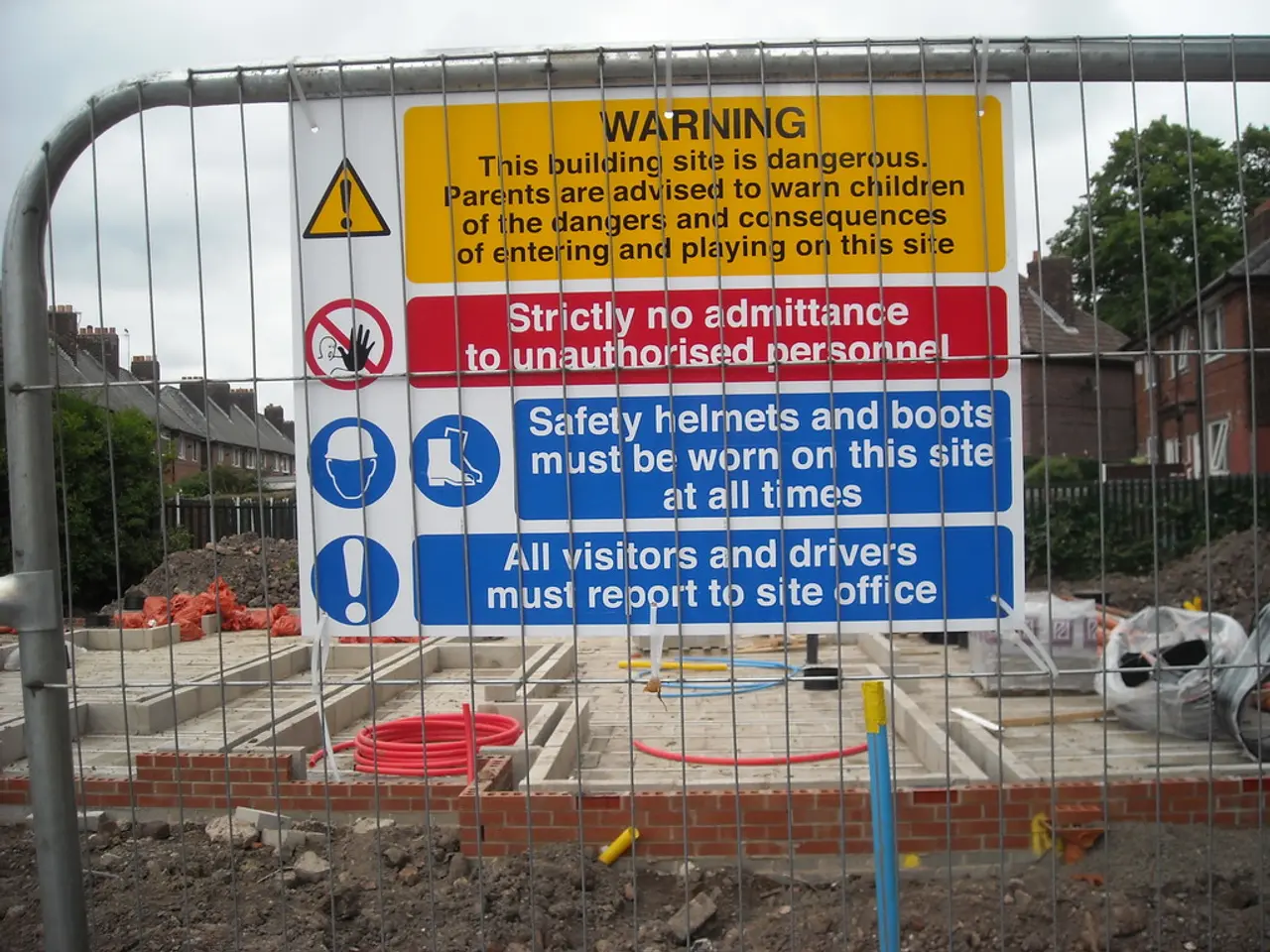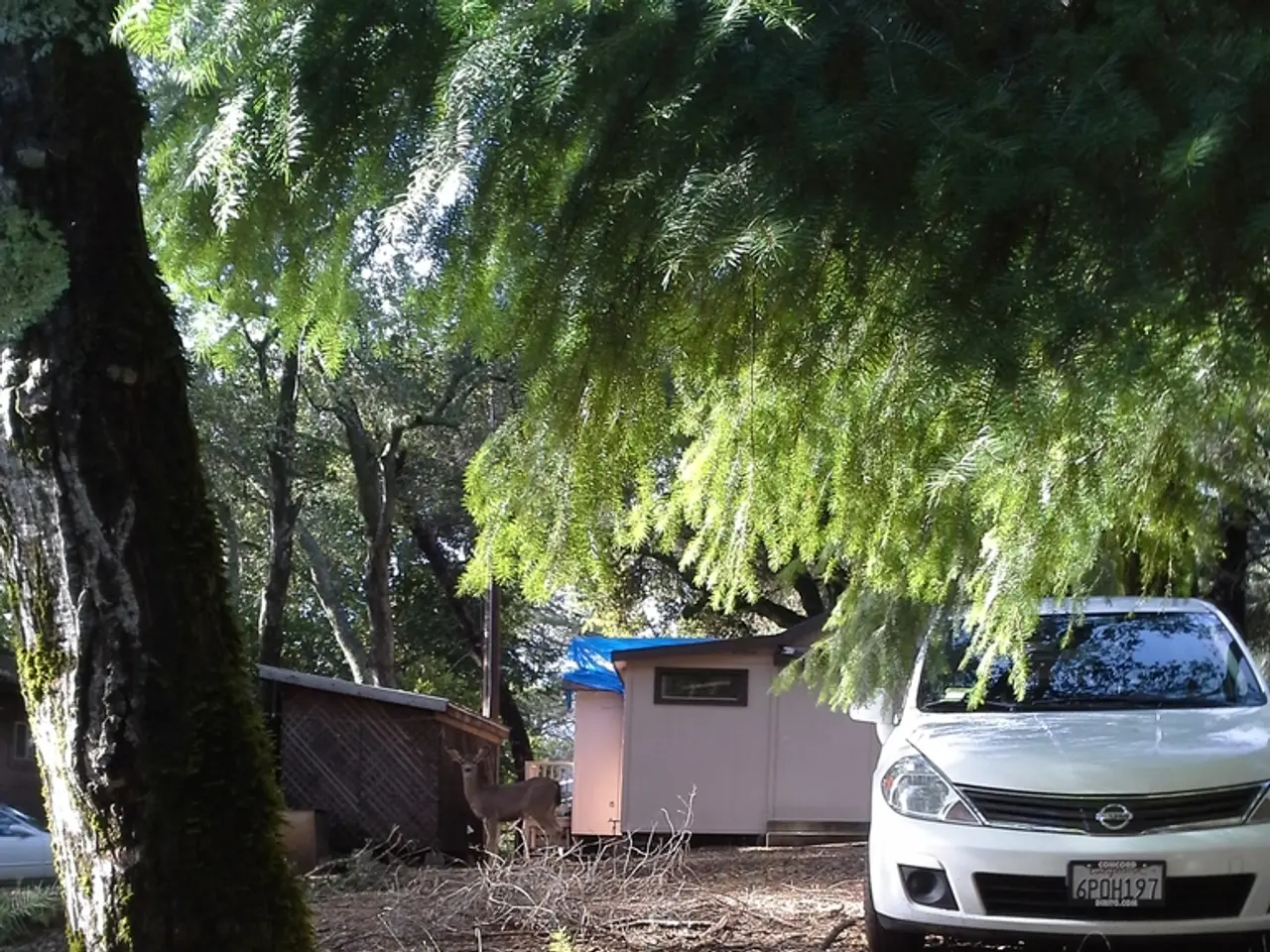Warming climate taking its toll: Bulgaria grapples with water shortage due to pipe leaks
Bulgaria is grappling with a severe water crisis that has left over half a million people threatened by shortages as of mid-2025[1][2]. The crisis, exacerbated by climate change and decades of poor water management, has resulted in aging infrastructure causing massive water losses[1][2].
The government has initiated a modernization plan to address the issue, focusing on infrastructure upgrades, new funding mechanisms, and temporary conservation measures. One key proposal is the establishment of a national fund to modernize the country's water infrastructure[2]. This fund would help repair the leaking water supply networks, which are currently losing about 50% of water before reaching consumers[2].
Another crucial aspect of the plan is the focus on repairing and replacing damaged pipelines, particularly those contributing significantly to the high rate of water loss[2]. Efforts are underway to identify key points of leakage and systematically repair or replace pipelines.
Water use restrictions and rationing are being implemented in certain municipalities, such as Simeonovgrad, where bans on using drinking water for non-essential purposes like watering gardens and washing cars have been introduced[1]. However, these measures have sparked social tensions and are deemed insufficient on their own[3].
Improving water catchment and reservoir management is also a priority, with the drying of rivers and reservoirs feeding key water supplies highlighting the need for better water resource management alongside infrastructure upgrades[1][2].
The village of Gorna Studena, where a resident named Nivyana ran out of water before finishing washing her clothes[4], has been particularly hard-hit. A retired agricultural expert, Nivyana faces difficult decisions due to water shortages, choosing between filling cans, running the washing machine, or taking a shower[5]. Some houses in Gorna Studena go without water for more than two days[6].
The water distribution in Gorna Studena is rationed according to zones and hours[7]. Mayor Plamen Ivanov of Gorna Studena is posting water distribution schedules and receiving numerous calls[8]. Despite these efforts, the saying in the two neighboring villages is "We have water under our feet, but we are dying of thirst"[9].
The water problems in Bulgaria have been ongoing for 15 years and have worsened each year[10]. The villages affected by water shortages are scattered throughout Bulgaria, indicating a systemic issue rather than an isolated one[10]. In mid-July, water interruptions affected over 156,000 people in Bulgaria, making it the EU country with the highest losses in supply networks[11].
Emil Gachev, a researcher at the Bulgarian Academy of Sciences, warns that Bulgaria is approaching a lasting water crisis[12]. The population of Gorna Studena has dwindled to around 200, mostly retirees[13]. With decades-old water pipes, some of which were laid before World War II[14], Bulgaria's modernization plan centers on improving infrastructure to reduce the staggering leakage rates.
Mayor Ivanov believes the current rationing system needs to change[15]. A commission set up last year to address the worsening water situation in Bulgaria has recommended establishing a national fund to modernize the infrastructure[16]. This multi-faceted approach aims to prevent worsening shortages and ensure a sustainable and reliable water supply for Bulgarian citizens in the near future[1][2][3].
[1] https://www.reuters.com/world/europe/bulgaria-faces-severe-water-shortage-2021-07-13/ [2] https://www.ec.europa.eu/neighbourhood-enlargement/countries/bulgaria_en [3] https://www.dw.com/en/bulgaria-faces-water-shortages-amid-drought/a-59075236 [4] https://www.dw.com/en/bulgaria-faces-water-shortages-amid-drought/a-59075236 [5] https://www.dw.com/en/bulgaria-faces-water-shortages-amid-drought/a-59075236 [6] https://www.dw.com/en/bulgaria-faces-water-shortages-amid-drought/a-59075236 [7] https://www.dw.com/en/bulgaria-faces-water-shortages-amid-drought/a-59075236 [8] https://www.dw.com/en/bulgaria-faces-water-shortages-amid-drought/a-59075236 [9] https://www.dw.com/en/bulgaria-faces-water-shortages-amid-drought/a-59075236 [10] https://www.dw.com/en/bulgaria-faces-water-shortages-amid-drought/a-59075236 [11] https://www.dw.com/en/bulgaria-faces-water-shortages-amid-drought/a-59075236 [12] https://www.dw.com/en/bulgaria-faces-water-shortages-amid-drought/a-59075236 [13] https://www.dw.com/en/bulgaria-faces-water-shortages-amid-drought/a-59075236 [14] https://www.dw.com/en/bulgaria-faces-water-shortages-amid-drought/a-59075236 [15] https://www.dw.com/en/bulgaria-faces-water-shortages-amid-drought/a-59075236 [16] https://www.ec.europa.eu/neighbourhood-enlargement/countries/bulgaria_en
- Despite the government's efforts to combat Bulgaria's water crisis through infrastructure modernization and conservation measures, social tensions have arisen due to water use restrictions.
- To address the high rate of water loss in Bulgaria, the government proposes establishing a national fund for modernizing the country's water infrastructure, which currently loses about 50% of water before reaching consumers.
- In addition to infrastructure repairs, enhancing water catchment and reservoir management is a priority to conserve water resources and improve the sustainability of Bulgaria's water supply.
- As the water crisis in Bulgaria aggravates climate change concerns, political discussions revolve around strategies to manage the environmental impact of water shortages in the arts, general news, and climate-change sectors.








